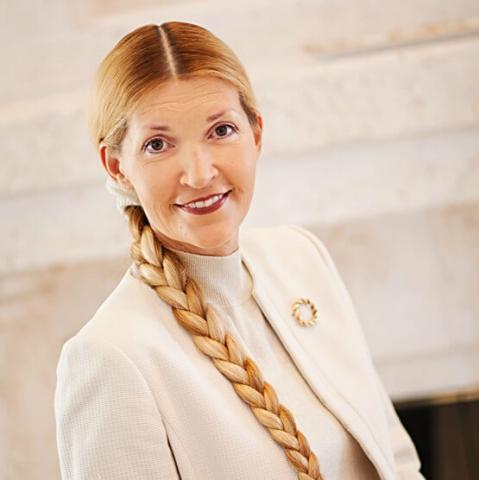
Sustainable health and wellbeing of people in the workforce, in the light of the Covid-19 pandemic, was the focus of a webinar hosted by Initiatives of Change’s business and economy programme on 14 September. The series of monthly business webinars addresses the sustainability of organizations and the factors which make that possible. Keynote presenter Sunita Raut, a Human Resources specialist from Stockholm with over 20 years of experience, said that ‘an HR manager is someone who cares for people. At the bottom is my concern for human beings.’ Sustainability was something that everyone had to be engaged in. The sustainability of businesses depended on the sustainability of health, both physical and psychological, she said, especially as sustainable businesses are essentially ‘a congress of human beings’.
The Covid-19 pandemic had highlighted ‘how unprepared we have been,’ she said. ‘So many businesses have closed down. Yet the psychological wellbeing of people is not being talked about. It is an issue that has been kept at arm’s length. The next pandemic could be of mental health issues.’
She emphasized that ‘happy people love to work together. Sick leave and absenteeism go down and retention of the workforce is promoted. You can picture people give each other high fives.’
Now, however, ‘The new workplace is behind computer screens’, due to the pandemic. She quoted figures from the Harvard Business Review which showed that, by May 2020, four out of five workers in the USA had been impacted by stay-at-home restrictions. A Mercer, US, study of 800 companies showed that 90 per cent of employees reported their productivity had stayed the same or increased.
Yet, according to a survey of 3,500 participants by the American Psychological Association, 78 per cent reported ‘stress from work and home collapse, increased workloads, and worries about job security.’ Raut did not give comparative figures for other countries. But, she said, according to PWC, 22 per cent of employees are considering living more than 50 miles from their places of work, and a third of those who worked from home said they would quit their jobs if they had to return to their offices full-time.
‘Workplaces have fundamentally changed,’ she commented. ‘We will never go back to pre-pandemic.’
She gave the advantages of remote working including productivity increases; work-life balance; a lower cost of living; reduction in commute time; and no need to relocate. On the other hand, the challenges of remote working included increased anxiety and burnout; blurred work-life boundaries; infrequent and vague communications; challenges to teamwork and collaboration; remote vision and policies missing.
She posed two questions to the online audience for group discussion: ‘Why are employees demanding a different workplace routine and work style, even after Covid restrictions are lifted?’ And ‘What is the future of leadership’ and what needs to change?
In response to the first question, feedback included the fact that the people worst hit by the pandemic have been those who have to be physically present at their jobs, including hospital staff, often under enormous strain, restaurant staff and delivery truck drivers, of which there has been a severe shortage. The pandemic had hit different sectors in different ways. White collar staff could often work from home, while blue collar workers often had to be at their place of work.

Dr Isabella Bunn (left) from Oxford University pointed out that online lectures could be global via Zoom, and tutoring could continue online. Museums could also go online. But computer hacking had also increased at a time of increased research into tackling viruses.
In response to the second question, participants said that a leadership of trust was essential between employers and employees. This meant trusting people to deliver on their work remotely.
Raut emphasized the need for leading with empathy. Future safe leadership included ‘clear and frequent communication; a clear post-Covid vision; keeping wellbeing and mental health in focus; and tech-powered workspaces.’ Or, as one participant put it: ‘leadership as a way of being’.
The webinar was hosted by Antoine Jaulmes, a consultant in business ethics from Paris who is chair of Initiatives of Change in Business and the Economy.
Two days after the webinar, a BBC survey reported that 'Most people do not believe that workers will return to the office full-time after the coronavirus pandemic.' The survey found that 70 per cent of those polled predicted that workers would 'never return to offices at the same rate', and that 'The majority of workers said that they would prefer to work from home either full-time or at least some of the time.'
